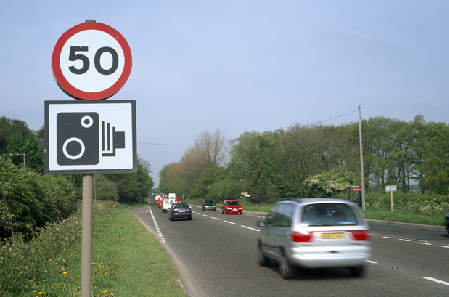With effect from 24th April 2017, The Sentencing Council will introduce new higher penalties for the most serious speeding offences. This means fines for offenders will have a starting point of 150% of weekly income rather than the existing level of 100% of weekly income.
Steps 1 & 2 – Determining the offence seriousness
(The starting point applies to all offenders irrespective of plea or previous convictions)
|
Speed Limit (mph) |
Recorded Speed (mph) |
||
|
20 |
41+ | 31 – 40 | 21 – 30 |
|
30 |
51+ | 41 – 50 |
31 – 40 |
|
40 |
66+ | 56 – 65 |
41 – 55 |
|
50 |
76+ | 66 – 75 |
51 – 65 |
|
60 |
91+ | 81 – 90 |
61 – 80 |
|
70 |
101+ | 91 – 100 |
71 – 90 |
|
Sentencing Range |
Band C Fine | Band B Fine |
Band A Fine |
| Points/Disqualifications | Disqualification 7-56 days or 6 Points | Disqualification 7-28 days or 4-6 Points | 3 Points |
Band Ranges
|
Starting Point |
Range |
|
| Fine Band A | 50% of relevant weekly income | 25-75% of relevant weekly income |
| Fine Band B | 100% of relevant weekly income | 75-125% of relevant weekly income |
| Fine Band C | 150% of relevant weekly income | 125-175% of relevant weekly income |
| Fine Band D | 250% of relevant weekly income | 200-300% of relevant weekly income |
| Fine Band E | 400% of relevant weekly income | 300-500% of relevant weekly income |
| Fine Band F | 600% of relevant weekly income | 500-700% of relevant weekly income |
The Court will then consider any further adjustment for any aggravating or mitigating factors. The following non-exhaustive list of additional factual elements providing the context of the offence and factors relating to the offender. The Court will identify whether any combination of these, or other relevant factors should result in an upward or downward adjustment from the sentence arrived at so far.
Factors increasing Seriousness
Statutory aggravating factors:
- Previous convictions, having regard to
- The nature of the offence to which the conviction relates and its relevance to the current offence; and
- The time that has elapsed since the conviction
- Offence committed whilst on bail
Other Aggravating factors:
- Offence committed on licence or post sentence supervision
- Poor road or weather conditions
- Driving LGV, HGV, PSV etc
- Towing caravan/trailer
- Carrying passengers or heavy load
- Driving for hire or reward
- Evidence of unacceptable standard of driving over and above speed
- Location e.g. near school
- High level of traffic or pedestrians in the vicinity
Factors reducing seriousness or reflecting personal mitigation
- No previous convictions or no relevant/recent convictions
- Good character and/or exemplary conduct
- Genuine emergency established
Step 3 – Consider any factors which indicate a reduction, such as assistance to the prosecution
- The Court will take into account sections 73 and 74 of the Serious Organised Crime and Police Act 2005 and any other rule of law by virtue of which an offender may receive a discounted sentence in consequence of assistance given (or offered) to the prosecutor or investigator.
Step 4 – Reduction for guilty pleas
- The Court should take account of any potential reduction for a guilty plea in accordance with section 144 of the Criminal Justice Act 2003 and the Guilty Plea guideline.
Step 5 – Totality principle
- If sentencing an offender for more than one offence, or where the offender is already serving a sentence, the Court will consider whether the total is just and proportionate to the overall offending behaviour in accordance with the Offences Taken into Consideration and Totality guideline.
Step 6 – Compensation and ancillary orders
- In all cases, the Court should consider whether to make compensation and/or other ancillary orders
Step 7 – Reasons
- Section 174 of The Criminal Justice Act 2003 imposes a duty to give reasons for, and explain the effect of, the sentence.







